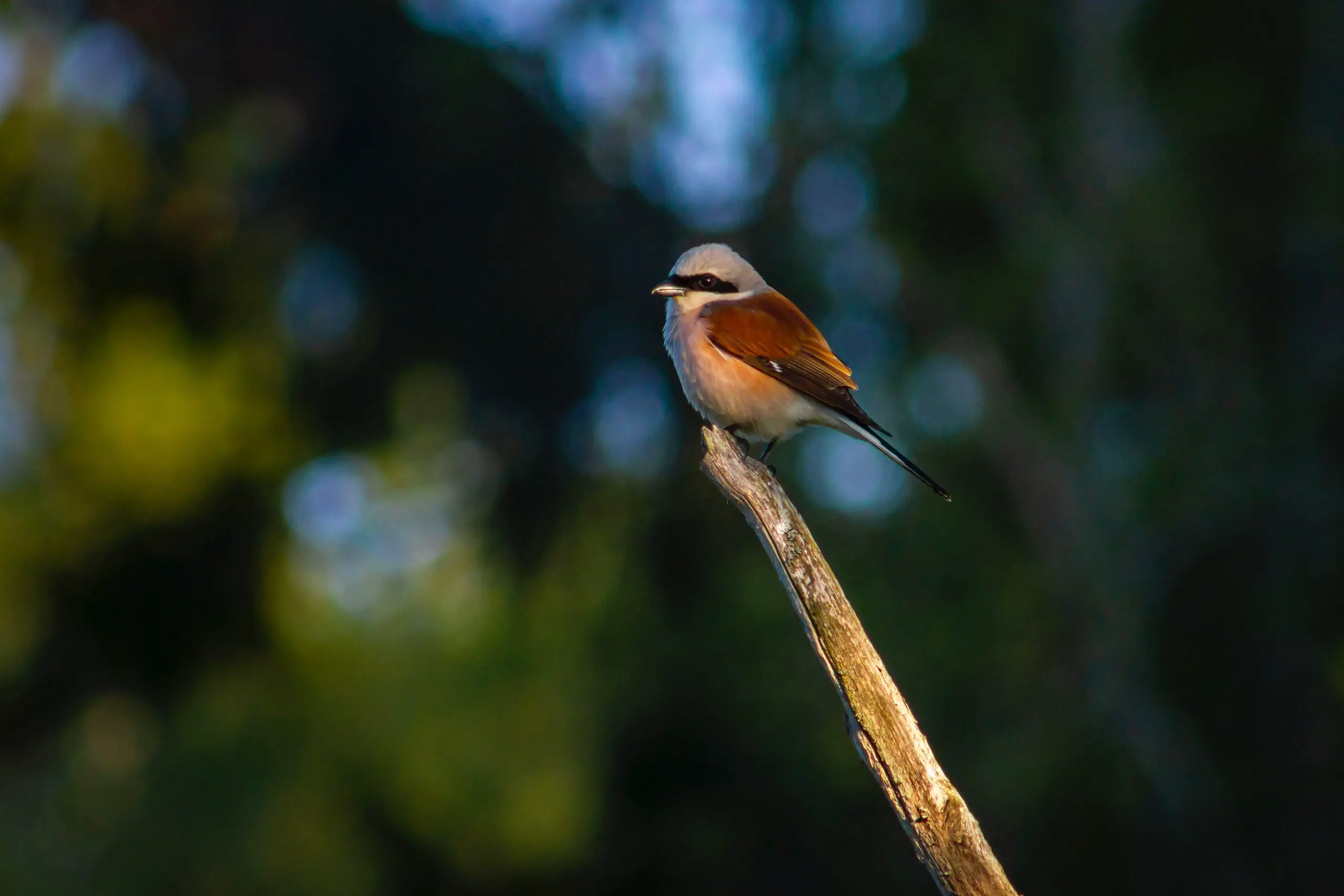Amidst the hustle of everyday life, people often find themselves seeking a connection with nature and a way to boost their mental well-being. There’s a certain calming effect when we listen to the rustling of leaves, the gentle flow of a river, or the distant chirping of birds. But what if I told you that amidst all these natural sounds, there’s one that holds a remarkable power?
It’s a sound that has been studied and proven to reduce stress, improve focus, and enhance overall relaxation. This one sound, often overlooked, can transport you to a serene state of mind, inviting a sense of tranquility that’s hard to find in the modern cacophony. Just like music, it adds a rhythm to our daily lives, becoming a familiar companion that helps us connect with our emotions and find solace in the little moments.
Unraveling the Magic of Birdsongs
Have you ever been walking home and paused when you heard a bird chirping, just to smile for a moment? A study led by academics from King’s College London found that everyday encounters with birds boosted the mood of people with depression, as well as the wider population. [1]
By utilizing the Urban Mind app, 1,300 participants were asked to track their environment and mental well-being three times a day. For the first time, it revealed the direct correlation between observing or hearing birds and experiencing a positive mood.
Researchers found “a significant positive association between seeing or hearing birds and improved mental well-being,” separate from being around greenery or water, which have their own associations with better mental health. Moreover, if participants encountered a bird during the day, their positive outlook lasted for hours.
Can Birdsong Reduce Anxiety and Prevent Mental Disorders?
A separate German study also showed that birdsong significantly reduces anxiety and paranoia. In this online experiment involving 295 participants, each person was randomly assigned to one of four conditions for a 6-minute period: low-level traffic noise, high-level traffic noise, subtle birdsongs, or a mix of diverse birdsongs. Before and after this exposure, participants completed tasks involving memory and cognitive abilities. They also filled out questionnaires about their levels of depression, anxiety, and paranoia.
Results revealed that exposure to loud traffic noise, especially with a variety of sounds, led to an increase in feelings of depression. In contrast, the conditions with birdsongs, particularly when there was a diversity of species, resulted in reduced feelings of depression and heightened levels of anxiety and paranoia. Cognitive performance, however, did not show any changes. [2]

What This Means for Mental Health
“Birdsong could also be applied to prevent mental disorders. Listening to an audio CD would be a simple, easily accessible intervention,” said Dr. Emil Stobbe, the German study’s lead author. “But if we could already show such effects in an online experiment performed by participants on a computer, we can assume that these are even stronger outdoors in nature.“
“We were recently able to perform a study showing that a one-hour walk in nature reduces brain activity associated with stress,” added senior author Simone Kühn. “We cannot say yet which features of nature – smells, sounds, color, or a combination thereof – are responsible for the effect. The present study provides a further building block to clarify this issue.” [3]
The insights from the studies shine a light on the critical need to protect and foster spaces that are inviting to birds, benefiting not just biodiversity but also human mental health. The results propose the possibility of prescribing visits to areas abundant with birds, like parks and waterways, as a potential treatment for mental health ailments. Such places can be a haven for those seeking respite from the pressures of daily life. Moreover, these insights illuminate the urgency of enhancing ecological preservation and biodiversity across urban, suburban, and rural regions to secure habitats for birds.
Additionally, enchanting birdsongs are deeply intertwined with an interesting principle called the Attention Restoration Theory, developed by psychologists Rachel and Stephen Kaplan. This notion implies that exposure to nature can act as a balm, restoring our mental sharpness and concentration capacity. [4]
The Kaplans delineate our attention into two categories: directed, which is employed for our immediate tasks, and involuntary, which is captivated by our surroundings. The harmonious and tranquil tones of birdsong foster what they term “soft fascination.” It is a serene absorption that allows our purposeful attention to unwind while our involuntary attention remains intrigued. This subtle balance aids in rejuvenating our minds, providing a sense of relaxation during birdwatching or while simply absorbing the symphonies of nature.

My Persona RX: Enhancing Your Mental Health Through the Calming Sound in Nature
There’s something inherently enriching about immersing oneself in nature, the quintessential reservoir of healing and rejuvenation. From the tranquil sounds of flowing water to the whispering breeze through the trees, nature is a treasure trove of well-being, holding profound effects on our mental health.
Here are my personalized, nature-oriented health tips to fortify mental health and enrich the mind-body connection:
- Embark on Mindful Walks: Stepping outdoors and engaging in walks can be profoundly revitalizing. Let your senses absorb the surroundings, noticing the myriad of colors, textures, and fragrances. This practice can significantly enhance mindfulness and reduce stress levels.
- Take the Path to Calm: Unwind your mind and restore inner peace by joining the Calm the Chaos guided meditation journey. By connecting with the elemental forces around you, experience serenity and mental clarity.
- Enhance Stress Resilience Naturally: Equip your body to combat stress more effectively with Adrenal Support supplements. These are formulated from natural, scientifically-backed ingredients to optimize your body’s stress response and uphold mental tranquility.
- Cultivate a Green Sanctuary: Whether it’s maintaining a small garden or having indoor plants, being around greenery can alleviate anxiety and elevate mood. Plants not only purify the air but also act as living embodiments of nature’s calming essence.
- Engage in Outdoor Exercises: Whether it’s yoga in the park or a bike ride through the trails, integrating outdoor activities can be a blissful way to stay fit and bolster mental well-being. The refreshing ambiance of nature can enhance the joy derived from physical activities.
As we embark on this journey of embracing the healing power of birdsongs, let’s remember that the effects go beyond ourselves. By prioritizing our mental well-being and connecting with nature, we contribute to a collective effort to preserve the environment and create spaces where birds can thrive. Just as the birdsongs offer a sense of belonging and harmony to our minds, our actions can ensure a harmonious coexistence with the world around us.

Sources:
- Hammoud, R., Tognin, S., Burgess, L., Bergou, N., Smythe, M., Gibbons, J., Davidson, N., Afifi, A., Bakolis, I., & Mechelli, A. (2022). Smartphone-based ecological momentary assessment reveals mental health benefits of birdlife. Scientific Reports, 12(1). https://doi.org/10.1038/s41598-022-20207-6
- Stobbe, E., Sündermann, J., Ascone, L., & Kühn, S. (2022). Birdsongs alleviate anxiety and paranoia in healthy participants. Scientific Reports, 12(1). https://doi.org/10.1038/s41598-022-20841-0
- Listen! Birdsong is good for mental health. (2022, October 13). EurekAlert! https://www.eurekalert.org/news-releases/967825
- Ackerman, C. E., MA. (2023). What is Kaplan’s Attention Restoration Theory (ART)? PositivePsychology.com. https://positivepsychology.com/attention-restoration-theory/



















